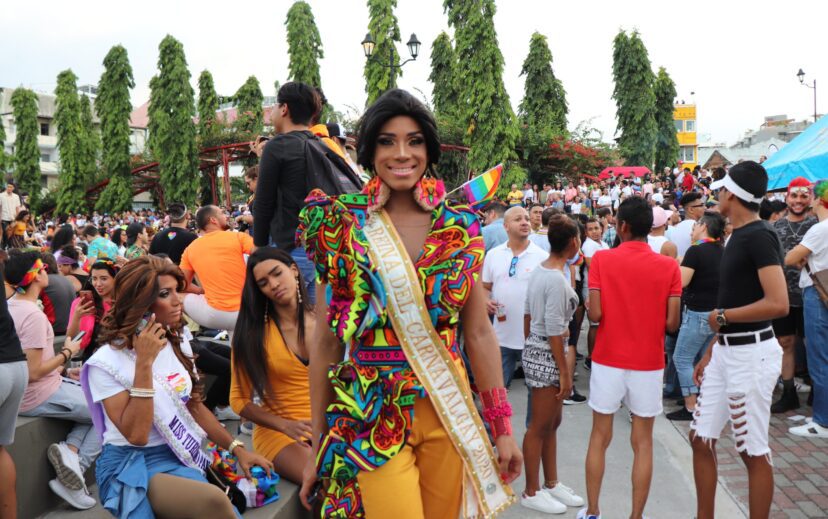Florida is set to join the chorus of more than a dozen states proposing laws that prohibit children from attending drag shows. While Tennessee became the first state in the country to enact a law restricting drag, at least 14 other states, including Florida, have also proposed such legislation. These laws open constitutional questions around whether such restrictions are consistent with the First Amendment guarantee of freedom of expression.
Protections for free speech under the First Amendment
The First Amendment protects written and oral speech as well as actions that convey ideas. The legal term for these actions is “expressive conduct.” In the past, the Supreme Court has held that making and displaying art, picketing, parades, burning a draft card and desecrating a U.S. flag are expressive conduct and protected under the First Amendment. Drag shows, which blend artistic and political messaging through gender-norm reversals, have historically been understood as protected expressive conduct.
A recent history of Florida’s laws targeting LGBTQ+ issues
Recently, Floridian politicians began proposing and enacting various laws that have been the source of concerns by the LGBTQ community. In 2022, Florida enacted HB 1557, a law known as “Don’t Say Gay,” that prohibits classroom discussion about sexual orientation and gender identity in certain grade levels. The “Don’t Say Gay” law was immediately challenged as unconstitutional on multiple grounds in a lawsuit filed on behalf of LGBTQ+ advocacy organizations, Equality Florida and Family Equality, and several students, parents and educators. Currently, this law remains in effect.
In July 2022, Florida Governor Ron DeSantis spearheaded a complaint against a popular Miami venue that hosts drag performances after a video showing two children at the venue’s drag brunch was circulated on social media.
In February 2023, Florida’s Department of Business and Professional Regulation moved to strip an Orlando venue of its liquor license, alleging that it knowingly exposed minor children to “lewd, vulgar, and indecent displays” during a Christmas-themed drag show that the venue hosted last year.
Newly proposed legislation
On March 2, 2023, Florida legislators filed a bill entitled “Protection of Children – HB 1438.” If passed, HB 1438 would authorize Florida state agencies to fine, suspend or revoke the license of any public lodging or food service establishment that admits a child to an adult live performance. The bill defines an adult live performance as “any show, exhibition, or other presentation in front of a live audience which, in whole or in part, depicts or simulates nudity, sexual conduct, sexual excitement” as well as “lewd conduct, or the lewd exposure of prosthetic or imitation genitals or breasts.” The bill describes drag shows as an immediate, serious danger to the public health, safety, or welfare. Any venue violating the proposed law for the first time would be slapped with a $5,000 fine, and a $10,000 fine for each subsequent violation. An individual who admits a minor to an “adult live performance” would face a charge of a first-degree misdemeanor.
Constitutional issues around regulating drag shows
Proponents of the HB 1438 bill, and others like it, argue that the restrictions are designed to protect minors. Opponents of the law contend that drag performances are a form of expressive conduct, which is protected under the First Amendment, and should be open to educate youth about acceptance and the performing arts. Courts review laws that limit the content of speech–a fundamental Constitutional right–with the highest level of scrutiny and are typically reluctant to restrict the freedom of expression.
However, the First Amendment does not protect free speech or expressive conduct that meets the legal definition of obscenity. In considering whether something is legally obscene, the Supreme Court requires courts to consider whether (1) the average person, applying contemporary community standards, would find that the work, taken as a whole, appeals to prurient interest; (2) the work depicts or describes, in a patently offensive way, sexual conduct defined by the applicable state law, and (3) the work, taken as a whole, lacks serious literary, artistic, political or scientific value. So far, the law restricting drag shows in Tennessee, as well as the proposed regulation in Florida, have been drafted in such a manner that these gender-bending performances may meet the legal definition of obscenity.
Conclusion
Whether Florida’s HB 1438 is passed into law remains to be seen. However, the state has made it clear in recent months that it would not shy away from relying on existing laws to enforce restrictions on drag performances. If you are a drag performer or own a venue that hosts drag shows, consulting an experienced attorney can help you understand your rights and navigate potential legal uncertainties.
Contributions to this blog by Ali Rawaf.
Photo by Betzy Arosemena on Unsplash




